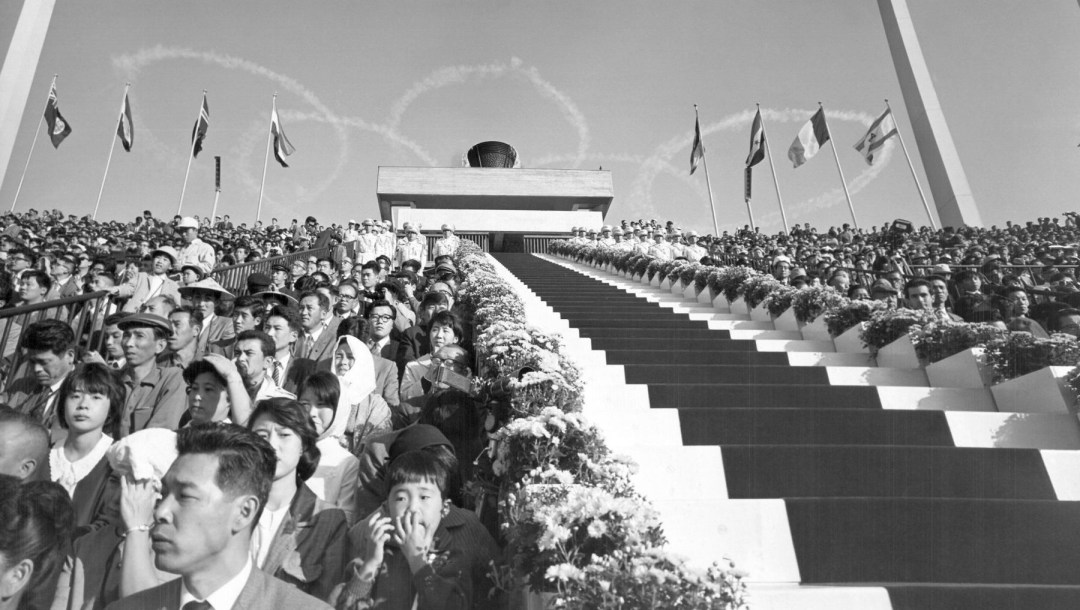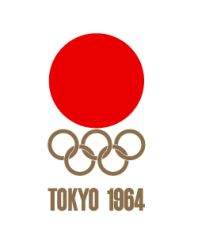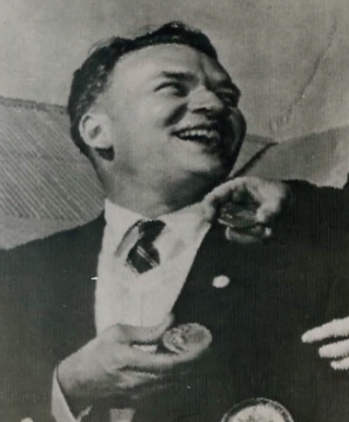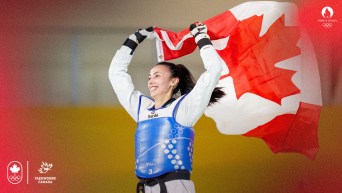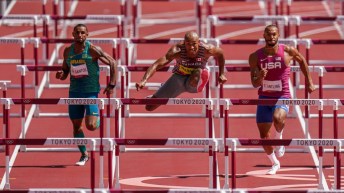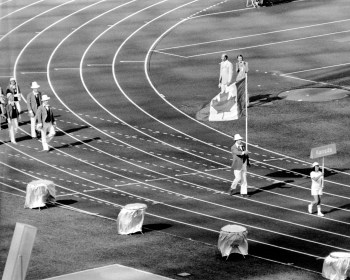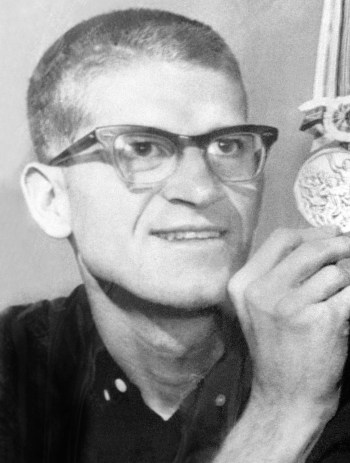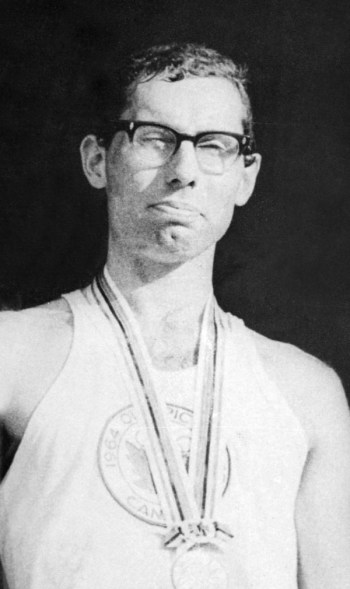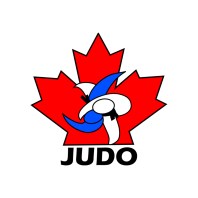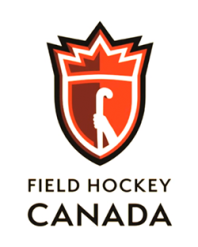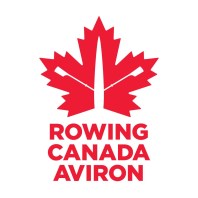Tokyo 1964
Team Canada Medal Count
Flag Bearers
Opening Ceremony
Games Summary
Games of the XVIII Olympiad
In hosting the first Olympic Games to be held in an Asian country, Japan was eager to show the world that it had recovered from the atrocities of World War II. One of the ways in which Japanese organizers expressed their successful reconstruction was in the selection of Yoshinori Sakai as the final torchbearer. Born in Hiroshima on August 6, 1945, the day the atomic bomb destroyed the city, he represented both an homage to the victims of that day and a call for world peace.
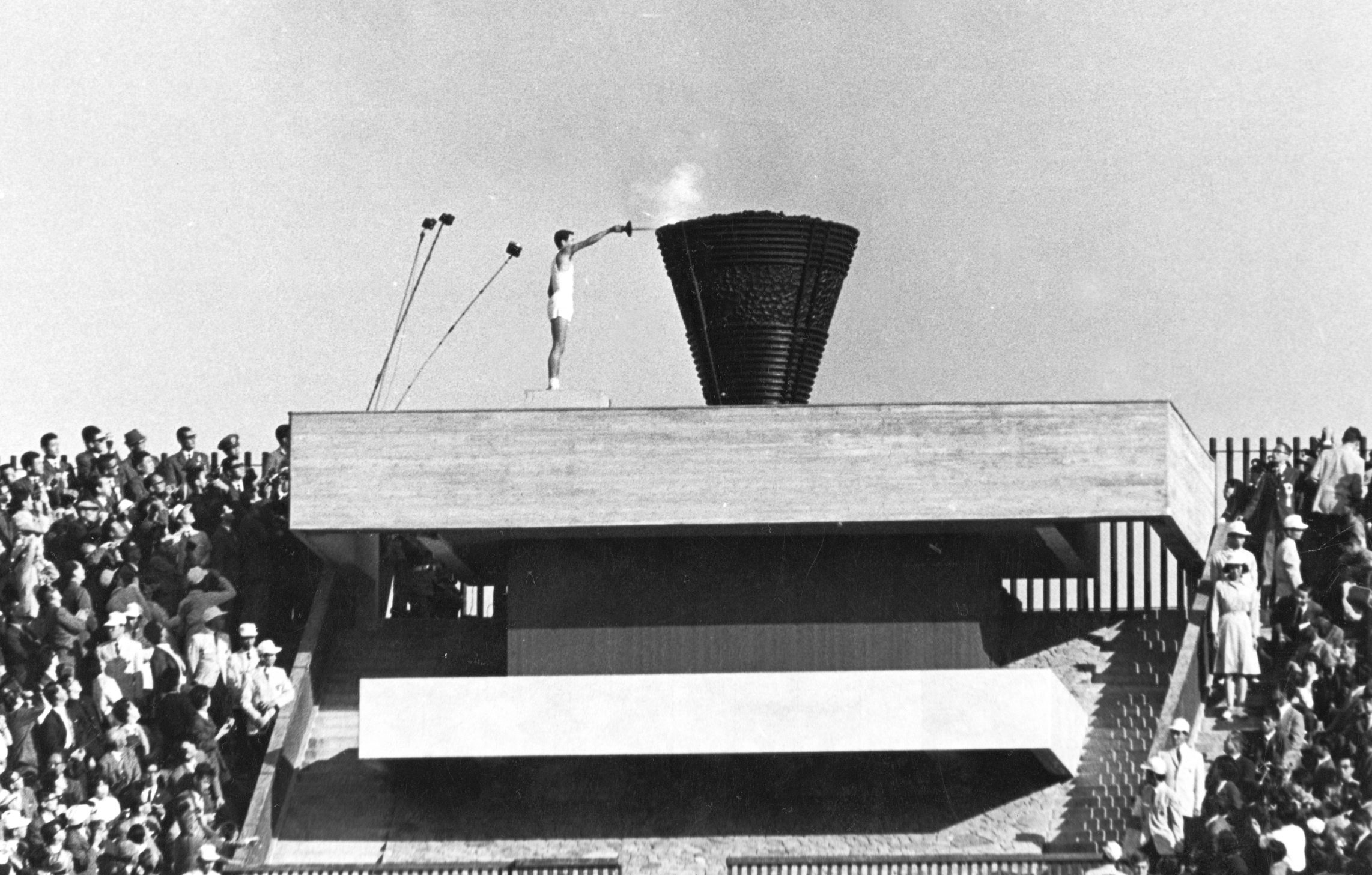
In this Oct. 10, 1964 file photo, Japanese runner Yoshinori Sakai lights the Olympic cauldron during the opening ceremony of the 1964 Olympic Games in Tokyo. Sakai was born in Hiroshima on Aug. 6, 1945, the day the nuclear weapon destroyed that city. He symbolized the rebirth of Japan after the Second World War as he opened the 1964 Tokyo Games. (AP Photo/File)
These were the last Games at which a cinder running track was used for athletics and the last at which hand timing by stopwatch was used for official timing. Two sports debuted, judo and volleyball, which marked the first Olympic appearance of a women’s team sport. Canada made the most of judo’s addition to the Olympic program as Doug Rogers won a silver medal.
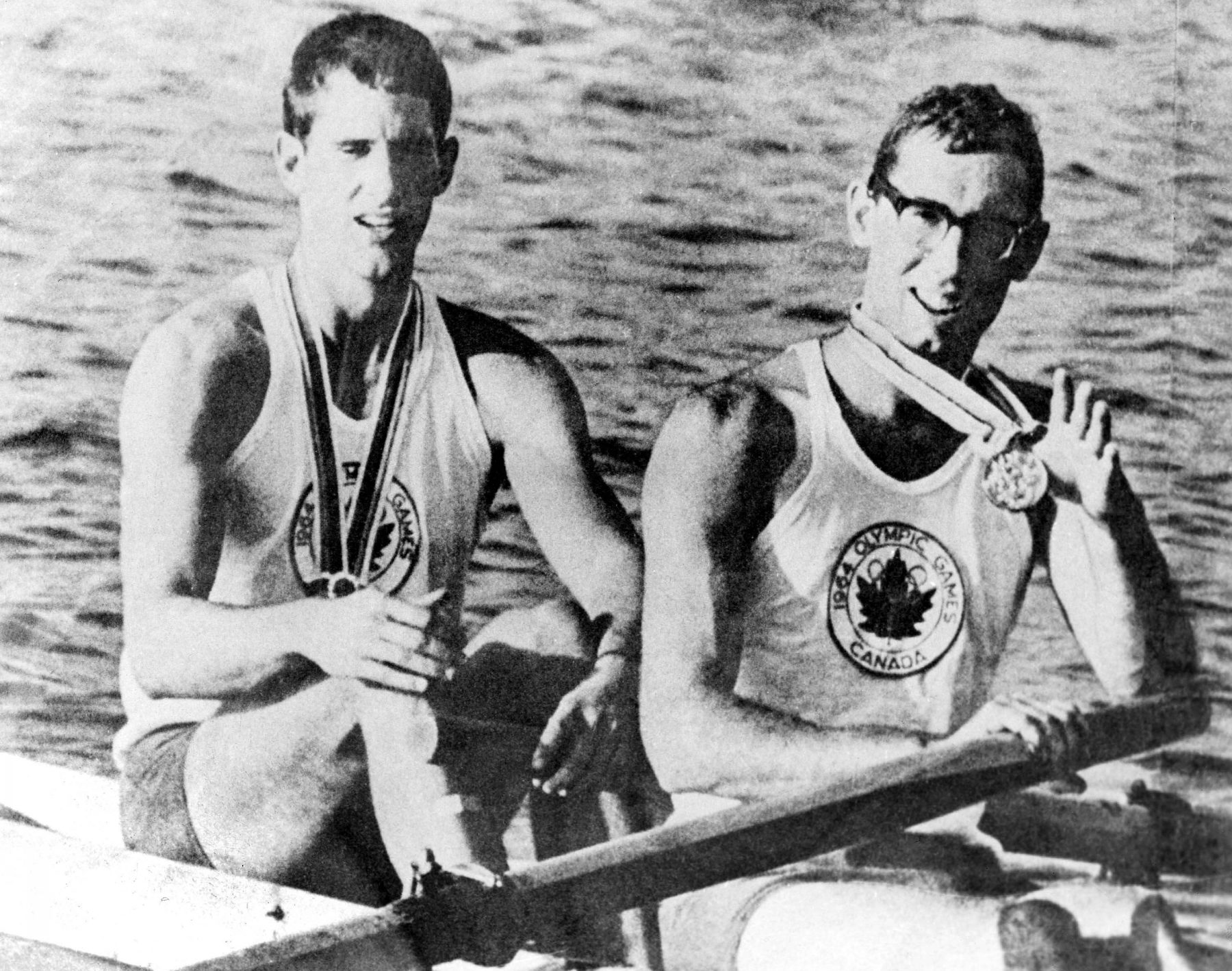
Canada’s Roger Jackson and George Hungerford celebrate their gold medal win in the pairs rowing event at the Tokyo 1964 Olympic Games. (CP Photo/COC)
Canada’s only gold in Tokyo came from rowers George Hungerford and Roger Jackson. Dubbed the “Golden Rejects”, they were originally alternates who had begun training as a pair just weeks before the Games. Given no chance of winning, most Canadian officials and journalists skipped the event, only to find out they had won gold by three-quarters of a boat length. Canada’s other two medals came from the track, as Bill Crothers won 800m silver and Harry Jerome captured 100m bronze.
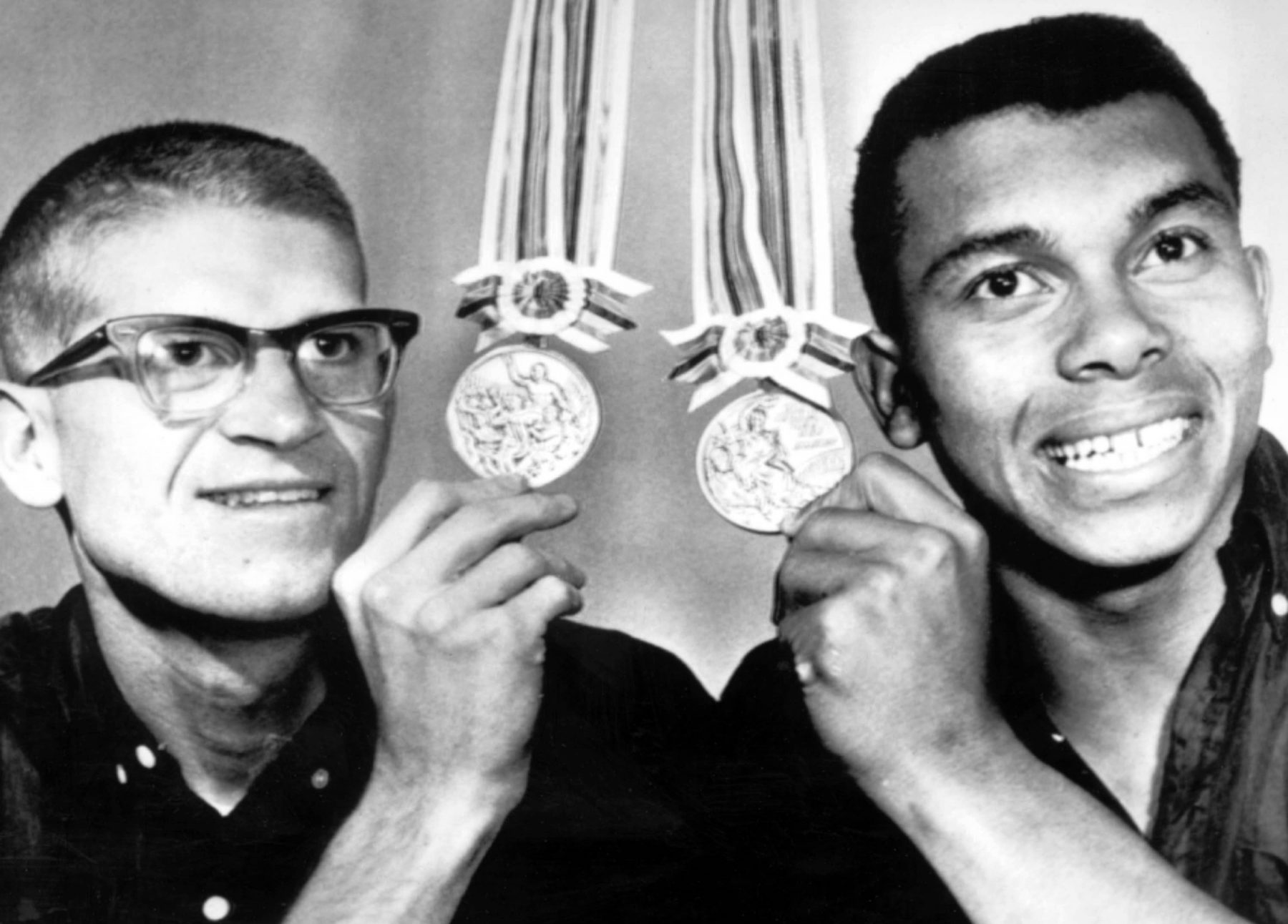
Bill Crothers and Harry Jerome with their silver and bronze medals from the Tokyo 1964 Olympic Games. (CP PHOTO/COC)
Canadian Medallists
| Event | Athlete | Finish | Sport |
|---|---|---|---|
| Coxless Pair - Men | Roger Jackson, George Hungerford | Gold | Rowing |
| Heavyweight - Men | Douglas Rogers | Silver | Judo |
| 800m - Men | Bill Crothers | Silver | Athletics |
| 100m - Men | Harry Jerome | Bronze | Athletics |

